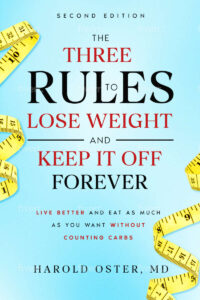The Truth About Eggs
The truth about eggs is complex, though it sounds simple.

There are pros and cons, and we all have different ideas about what is important. My father will give up taste to avoid the slightest harm. Most people eat whatever they want and don’t think about it. If there are any harms in eating something, I recommend you consider these. Since I was in medical school thirty years ago, there has been a debate about eggs and heart disease.
Countless studies have looked at the risks of eggs, their effect on cholesterol levels, and whether that translates into harm. As an aside, there is absolutely a link between cholesterol and heart disease. Anyone who says otherwise is wrong or lying. It is not a perfect link. Neither is the link between seatbelts and death in a car accident. The risk of dying in a car accident is much higher than dying from an egg. (See a later post on hazard and risk.) Thankfully, we are not in many car accidents.
For most of my career, experts have claimed eggs are bad for cholesterol and cause heart disease. But, experts and dietary studies are far from perfect.
One of the biggest problems with dietary studies is that it is difficult to look at the effect of a new food in your diet without removing something else. If you changed from frying in shortening, when it still had trans fat, to sunflower oil, you would see benefits. Was this from the sunflower oil? Maybe, but it was also from removing the shortening from your diet. The same thing happens with eggs.
If you look at egg eaters, they probably eat less of something else, say Cocoa Puffs. Another problem is what are called confounding variables. If you try to study whether eggs are good for you, you have to look at other foods the study group may be eating. Egg eaters may also be more likely to eat bacon or smoke. There are statistical methods to control for these variables, but they are imperfect (called residual confounding).
Another problem with egg studies is the lack of knowledge about cholesterol. First, most experimenters have looked at total cholesterol and determined that eggs are rotten because they raise total cholesterol. But total cholesterol is not a good predictor of heart disease because there is LDL (often called bad cholesterol) and HDL (good cholesterol).
Over the last several years, we have learned about the subfractions of LDL and the function of HDL. Small LDL is particularly harmful because it more easily enters the wall of the coronary arteries. Large LDL is the opposite. HDL can aid in removing cholesterol from the artery walls, called cholesterol efflux. Some HDL performs this function better than others. Well, eggs are associated with lower levels of small LDL, higher large LDL, and improved HDL functioning. (See the study)
So what about studies directly comparing egg consumption with heart disease? Some studies have shown harm, and more recent studies have been inconclusive or have even shown benefits. I have learned in medicine that if it takes many studies to prove harm or benefit, the effect if it exists, is likely to be unimportant. But, a recent meta-analysis, a study that combines many previous studies, suggests no harm and even some benefit of eating eggs. (See the study)
So, what is the truth about eggs? I wouldn’t eat five eggs every day, but within reason, eating eggs has little effect on coronary artery disease risk. A theme in my book, The Three Rules to Lose Weight and Keep It Off Forever, is to avoid being ridiculous. This applies to eggs. 5-10 a week or a bit more probably has little harm. 30 per week might. But remember, what you replace it with is important. If I replace eggs with tuna or sardines, that would be fine. If I replace it with Cap’n Crunch, you’d better watch your scale. As always, please talk to your doctor about your specific health issues and the risk of eggs.
 The Second Edition of The Three Rules to Lose Weight and Keep It Off Forever is available on
The Second Edition of The Three Rules to Lose Weight and Keep It Off Forever is available on 